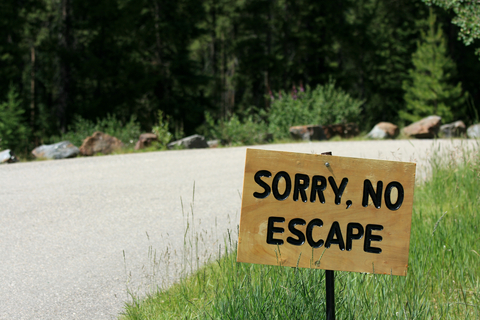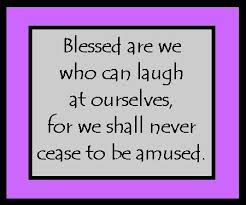
Own Your Emotional Reactivity
MysteryShrink for the Short Attention Span is about what you can do right now to make a difference in your experience inside your head and with other people. We humans are predictable. We can use this information for good.
For starters, open a folder and log in the following title. “This, (whatever just happened or whatever scary thought that just zipped through your brain) – this is unfortunate, inconvenient and unpleasant, but not a disaster unless I decide to make it one.”
Keep the folder open for action plan below. Or maybe have it tattooed in the place of your choice. (Has to be on your own body.)
Comedian Ron White described our over-reaction problem with reactivity this way. After he’d been tossed (literally) out of a bar and into the street in a strange city, a policeman stood him up and assured Ron that he had the right to remain silent. Up to that point, he was in trouble, but only wrist slap level trouble. But being human, Ron managed to turn a wrist slap into jailtime-expensive-lawyer level trouble. As he explains, “The nice policeman told me I had the right to remain silent. Unfortunately, while I had the right–I did not have the a-bil-lity.”
We humans are ill-equipped to deal with other people and ourselves in the midst of the anxiety tsunami. But we can do better.

Quick Fix #1: Take Ownership of Your Reactivity
The starter. A bit of ‘starter’ is used to make a loaf of bread. We can use the ‘disaster’ sentence as our starter. A recognition of our own power. When the urge to over-react jumps up and threatens to spur your reaction into an over-reaction (a process that seems automatic) repeat to yourself: “This is unfortunate, inconvenient and unpleasant, but not a disaster unless I decide to make it one.”
Repeating the sentence out loud works, too, but since most of my over-reactions originate in my need to be seen as cool and smart–mumbling at the television could be seen as a cry for help. Said aloud or not, the sentence helps. When you are paying attention to the words, “This is unfortunate, inconvenient and unpleasant, but not a disaster unless I decide to make it one,” you cannot simultaneously organize your outrage.

Taking ownership is not a step everyone can even consider. Blaming others can be such a deeply rutted habit (and the only anxiety-reducer modeled at home) that a person simply cannot ‘see’ choice and power in how to he/she reacts. Taking responsibility for your reactions does not mean other people have no part. Of course, they do. A major characteristic of over-reacting is black or white, all or nothing’ responses. Because we have a part in our reaction does not mean that other people and the weather do not have a part. That’s nuts. If someone whizzes across your lawn and parks his Harley on your foot—that hurts. What happens next—you have a part in that.
But, please be kind to yourself. (Which will help you be kind to others.) No way you can jump from yelling insults at the television (oh, I think that’s my annoying over-reaction habit) to the tranquility of the Buddha. A two percent move make a difference. It’s a game-changer, a relationship changer. A health changer.
Taking ownership of our reactions is really, really hard. We’ve been told since we were toddlers that over-reacting is a bad idea. We see the results ourselves. We’ve been told, preached at, and maybe even been arrested for our over-reactions. Yet the facts and the relabeling psychobabble terms make no difference in our reactivity because lack of information is not the problem. If more information was what we humans need to change self-defeating habits, there would be one diet book.

**Bonus Hint** When another person (especially a spouse or relative) is struggling with anxiety or splattering anxiety or just plain upset, it is not a good plan to attempt ‘help’ by proudly sharing the “not a disaster unless you make it one” mantra. Think about it. When you are upset, it does not help for someone to point out that you’re not handling life perfectly.
The other’s concern may be for your health and happiness or may be because he/she is exhausted with the emotional storm. Why doesn’t matter. To criticize (and when anxious, most every comment on the behavior of others is criticism) is a bad idea. The same goes for how we respond to our own less than perfect reactions. If we are unkind and harsh to ourselves the situation will become more anxious and more unfortunate, inconvenient and unpleasant.
***Bonus Good News*** You’ve been sold that there’s only one person you can change—yourself. This is not accurate and maybe even lazy. The way we manage ourselves in crisis affects the response of others. More later on the sneaky and noble goal of changing other people.





